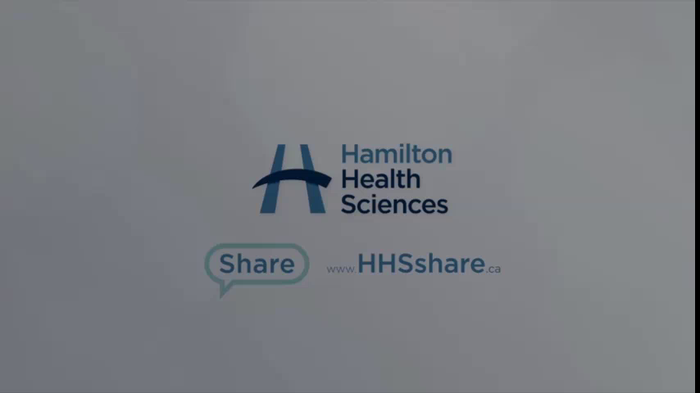Philadelphia, April 21, 2022 – A team of researchers at Western University is calling for an end to a long-held, strict policy of anonymity in organ donations, pushing for new legislation that will allow donor families to connect with organ recipients, if they choose to.

Credit: Hamilton Health Sciences
Philadelphia, April 21, 2022 – A team of researchers at Western University is calling for an end to a long-held, strict policy of anonymity in organ donations, pushing for new legislation that will allow donor families to connect with organ recipients, if they choose to.
In a new commentary published in the Canadian Journal of Cardiology, Western University bioethicist Charles Weijer, MD, PhD, post-doctoral fellow Nicholas Murphy, and their collaborators argued that existing legislation, in Ontario and other Canadian provinces and territories, preventing families of deceased donors from identifying their beneficiaries is outdated and unfair.
The commentary suggested the need for policy change across Canada.
“A growing number of jurisdictions both in Canada and internationally are realizing that restrictive approaches to donor family and recipient contact are outdated and unfairly limit the autonomy of mutually consenting stakeholders,” said Weijer, a professor at Schulich School of Medicine & Dentistry and Western University’s department of philosophy. “It is time for all Canadian provinces and territories to address this new reality.”
Weijer, a leading expert on the ethics of randomized controlled trials, noted there is growing recognition that direct contact between deceased donors’ families and organ recipients can be beneficial for mutually consenting parties. In fact, three provinces — British Columbia, Alberta and Nova Scotia — now have mechanisms in place for mediating direct contact.
“The rest of Canada should harmonize policies with these progressive jurisdictions to allow interested donor families and organ recipients to benefit from direct contact,” said Murphy. “In provinces like Ontario, this will require legislative change to permit organ donation organizations to develop responsible policies.”
Weijer and Murphy’s team recommended that provincial organ donation organizations should convene a working group to explore responsible paths forward and outline appropriate frameworks for facilitating direct contact.
“A balanced approach to donor family and recipient contact will help to protect anonymity for those who want it and responsibly facilitate contact for those who do not,” said Weijer.
Tangible results
When conducting research into the psychological supports available to deceased organ donors’ families and organ recipients, Weijer and Murphy found a video telling the story of Kim LeBlanc and Dave Allingham. LeBlanc lost her son, Tyler Schwering, in a tragic accident. Schwering had donated his organs, and Allingham’s life was saved when he received the young man’s heart. Although legislation in Ontario prevents organ donation organizations from disclosing the identities of deceased donors’ families and organ recipients for privacy reasons, LeBlanc and Allingham managed to find each other.
Their story was so moving that Weijer and Murphy invited LeBlanc and Allingham to join them as authors of the article.
“Kim and Dave’s story underlines how getting to know the people on the other side of the donation process can promote healing, help stakeholders to find closure, and honor the legacy of the deceased donor’s gift of life,” said Murphy. “Mandated anonymity unduly restricts the autonomy of stakeholders who ought to have the option of meeting when it is mutually desired.”
Though it’s difficult, LeBlanc believes the benefits of identity disclosure for donor families and recipients can far outweigh the discomfort.
“Losing a loved one, especially a child, is a loss beyond words and that grief can be debilitating. Knowing my son’s heart recipient has helped me channel my grief in a healthy way and allowed me to live again,” said LeBlanc. “Having the option for a guided meeting of the donors and recipients will allow donor families to actually see the difference their loved one has made and allow for recipients to share how that gift has changed their lives. The results will be tangible.”
Allingham agreed, saying mandated anonymity unduly restricts the autonomy of consenting stakeholders.
“People should be given the right. It’s not for everyone. But not being given the choice is wrong. The fact that people don’t have the choice – it’s wrong,” said Allingham.
Social media impact
The rise of social media has enabled donor families and recipients to find one another, despite the legislation, demonstrating that restrictive regimes are fast becoming obsolete.
“Donor families and recipients can and do identify one another, quite simply, by using social media. When they do, they are exposed to all the risks that underpinned restrictive legislation in the first place,” said Weijer. “Yet, in places like Ontario, organ donation organizations cannot mediate direct contact without breaking the law.”
The legislation designed to protect stakeholders now prevents organ donation organizations from developing responsible policy to support those who feel they would benefit from non-anonymous contact.
“Like it or not, the rise of social media means that stakeholders are finding each other,” said Murphy. “It’s time to address this new reality by exploring responsible ways to enable non-anonymous contact between mutually consenting donor families and organ recipients.”
Journal
Canadian Journal of Cardiology
DOI
10.1016/j.cjca.2022.01.005
Method of Research
Commentary/editorial
Subject of Research
People
Article Title
A Pressing Need for Effective, Clear, and Consistent Regulations to Facilitate Direct Contact Between Donor Families and Organ-Transplant Recipients
Article Publication Date
21-Apr-2022




